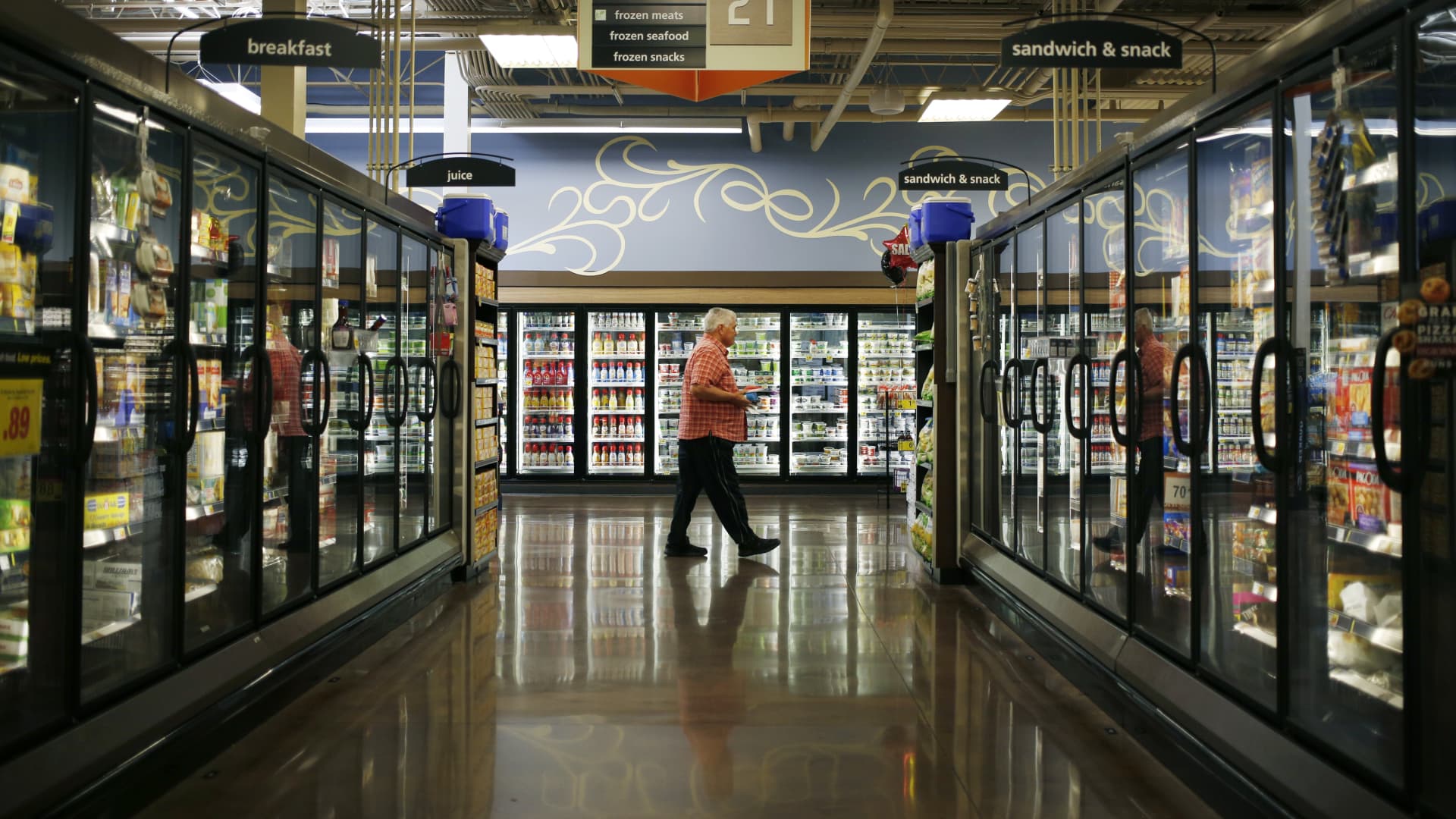Americans love frozen food.
Virtually all American households purchase frozen food at least once a year, but without resilient cold storage supply chain infrastructure, the growth and safety of the massive $265 billion global frozen food market may be put at risk.
“Consumers are buying more frozen products. It’s going to require more storage capability and a more efficient supply chain,” Brian Choi, CEO and managing partner of The Food Institute, told CNBC.
In 2022, frozen food sales in the U.S. reached more than $72 billion, according to the American Frozen Food Institute.
“We’re seeing that growth continue,” Alison Bodor, CEO of the American Frozen Food Institute, told CNBC.
During the coronavirus lockdowns in 2020, frozen food sales reached more than $65 billion, according to the institute.
“The pandemic taught consumers to invest in bulk buying,” Sonia Punwani, chief marketing officer of Cargill Protein North America, told CNBC. “Frozen foods were some of the bestselling items during the pandemic since they can be really stored for long periods of time.”
There’s a sophisticated supply chain keeping perishables frozen. Products have to maintain proper temperature throughout a complex network of refrigerated trucks and cold storage facilities.
Approximately 13% of all food produced globally is lost due to poor cold storage supply chains every year, according to a study from Columbia University’s Climate School.
“In the world of cooling refrigeration, we’re still depending upon a more than century-old mechanical incumbent,” Tony Atti, CEO of Phononic, a solid-state cooling company, told CNBC.
Phononic aims to minimize food waste. One of its products is a temp-sensitive refrigerator tote that allows shippers to spend less getting food to e-grocers and grocery stores. Phononic is one of CNBC’s 2023 Disruptor 50 companies, marking its fourth time on the annual list.
Also on CNBC’s 2023 Disruptor 50 list is Lineage Logistics, a company on a mission to make the food supply chain more efficient.
“We’re helping to move food through the entire cold chain and ensuring that it keeps a safe temperature the entire way,” said Jeff Rivera, COO of Lineage Logistics.
The Michigan-based company has grown to more than 430 locations across 20 countries, offering a global network of temperature-controlled cold storage facilities for food products and each facility “blast freezes” millions of pounds of product a day with warehouse racks specifically designed for efficiency.
Watch the video above to learn more about the influence of frozen food, the global cold storage supply chain infrastructure, what it takes to freeze food products and what’s next for this growing section of the grocery store.
